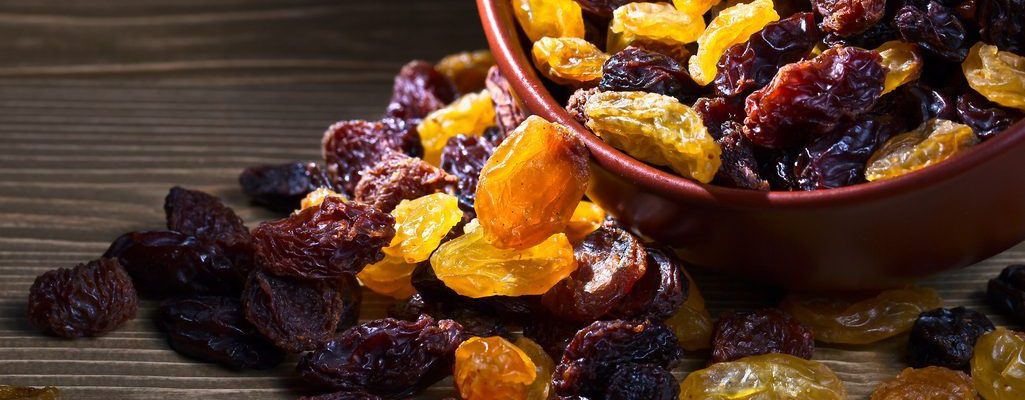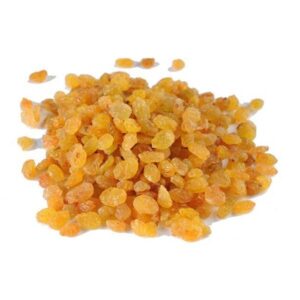
Exporting Raisins to Europe
A Gateway to New Opportunities
Introduction to the European Raisin Market
The European market presents a significant opportunity for raisin exporters, thanks to its growing demand for healthy snacks and versatile ingredients. With a strong inclination towards natural, organic, and sustainable food products, European consumers are increasingly incorporating raisins into their diets. This article provides an overview of the essentials for exporting raisins to Europe, including market trends, regulations, and strategies for success.

gold raisins
The Growing Demand for Raisins in Europe
1. Health Consciousness Among Consumers
European consumers are becoming more health-conscious, leading to a surge in demand for nutritious snacks. Raisins, rich in fiber, vitamins, and antioxidants, are favored for their health benefits, including improved digestion and heart health. As people look for alternatives to processed snacks, raisins have emerged as a popular choice due to their natural sweetness and convenience.
2. Culinary Versatility
Raisins are not only enjoyed as a snack but are also a staple ingredient in various culinary applications across Europe. They are commonly used in:
- Baked Goods: Raisins enhance the flavor and texture of breads, pastries, and cookies.
- Savory Dishes: They are often added to salads, rice dishes, and tagines, providing a delightful contrast to savory flavors.
- Healthy Snacks: Raisins are a popular addition to trail mixes, granola bars, and breakfast cereals, catering to the increasing demand for convenient and nutritious options.
Key Considerations for Exporting Raisins to Europe
1. Understanding EU Regulations
Before exporting raisins to Europe, it is crucial to comply with the European Union (EU) regulations regarding food safety and quality. Key requirements include:
- Food Safety Standards: Raisins must meet EU food safety standards, including regulations on pesticide residues and contaminants. Familiarize yourself with the EU’s Common Agricultural Policy (CAP) and related guidelines.
- Quality Certifications: Obtaining certifications such as GlobalGAP, HACCP, or organic certification can enhance your product’s marketability and compliance.
2. Quality and Packaging Standards
The quality of raisins significantly impacts market acceptance in Europe. Consider the following:
- Product Quality: Ensure that your raisins are of high quality, free from foreign materials, and have a consistent appearance. Popular varieties include Thompson Seedless and Sultana.
- Packaging: Use durable, moisture-proof packaging that maintains freshness during transport. Packaging should be appealing and comply with EU labeling requirements, including information on allergens and nutritional content.
Logistics and Distribution Strategies
1. Shipping and Transportation
Selecting the right shipping method is vital for preserving the quality of raisins during transport. Most exporters opt for sea freight for bulk shipments due to its cost-effectiveness. However, for smaller shipments or urgent orders, air freight may be a better option.
https://raisinexporter.com/2020/05/10/iranian-raisin/
- Cold Chain Management: Implementing cold chain logistics can help maintain the quality of raisins, especially during transit.
2. Identifying Distribution Channels
Finding the right distribution channels is essential for successfully entering the European market. Consider the following options:
- Local Importers and Distributors: Partnering with established local importers can facilitate market entry and help navigate regulatory requirements.
- E-commerce Platforms: The rise of e-commerce in Europe provides an opportunity to reach consumers directly. Platforms like Amazon, eBay, and specialized online grocery stores can help expand your market reach.
https://raisinexporter.com/2024/07/31/uses-of-raisins/
A Gateway to New Opportunities
Introduction to the European Raisin Market
The European market presents a significant opportunity for raisin exporters, thanks to its growing demand for healthy snacks and versatile ingredients. With a strong inclination towards natural, organic, and sustainable food products, European consumers are increasingly incorporating raisins into their diets. This article provides an overview of the essentials for exporting raisins to Europe, including market trends, regulations, and strategies for success.

gold raisins
The Growing Demand for Raisins in Europe
1. Health Consciousness Among Consumers
European consumers are becoming more health-conscious, leading to a surge in demand for nutritious snacks. Raisins, rich in fiber, vitamins, and antioxidants, are favored for their health benefits, including improved digestion and heart health. As people look for alternatives to processed snacks, raisins have emerged as a popular choice due to their natural sweetness and convenience.
2. Culinary Versatility
Raisins are not only enjoyed as a snack but are also a staple ingredient in various culinary applications across Europe. They are commonly used in:
- Baked Goods: Raisins enhance the flavor and texture of breads, pastries, and cookies.
- Savory Dishes: They are often added to salads, rice dishes, and tagines, providing a delightful contrast to savory flavors.
- Healthy Snacks: Raisins are a popular addition to trail mixes, granola bars, and breakfast cereals, catering to the increasing demand for convenient and nutritious options.
Key Considerations for Exporting Raisins to Europe
1. Understanding EU Regulations
Before exporting raisins to Europe, it is crucial to comply with the European Union (EU) regulations regarding food safety and quality. Key requirements include:
- Food Safety Standards: Raisins must meet EU food safety standards, including regulations on pesticide residues and contaminants. Familiarize yourself with the EU’s Common Agricultural Policy (CAP) and related guidelines.
- Quality Certifications: Obtaining certifications such as GlobalGAP, HACCP, or organic certification can enhance your product’s marketability and compliance.
2. Quality and Packaging Standards
The quality of raisins significantly impacts market acceptance in Europe. Consider the following:
- Product Quality: Ensure that your raisins are of high quality, free from foreign materials, and have a consistent appearance. Popular varieties include Thompson Seedless and Sultana.
- Packaging: Use durable, moisture-proof packaging that maintains freshness during transport. Packaging should be appealing and comply with EU labeling requirements, including information on allergens and nutritional content.
Logistics and Distribution Strategies
1. Shipping and Transportation
Selecting the right shipping method is vital for preserving the quality of raisins during transport. Most exporters opt for sea freight for bulk shipments due to its cost-effectiveness. However, for smaller shipments or urgent orders, air freight may be a better option.
https://raisinexporter.com/2020/05/10/iranian-raisin/
- Cold Chain Management: Implementing cold chain logistics can help maintain the quality of raisins, especially during transit.
2. Identifying Distribution Channels
Finding the right distribution channels is essential for successfully entering the European market. Consider the following options:
- Local Importers and Distributors: Partnering with established local importers can facilitate market entry and help navigate regulatory requirements.
- E-commerce Platforms: The rise of e-commerce in Europe provides an opportunity to reach consumers directly. Platforms like Amazon, eBay, and specialized online grocery stores can help expand your market reach.